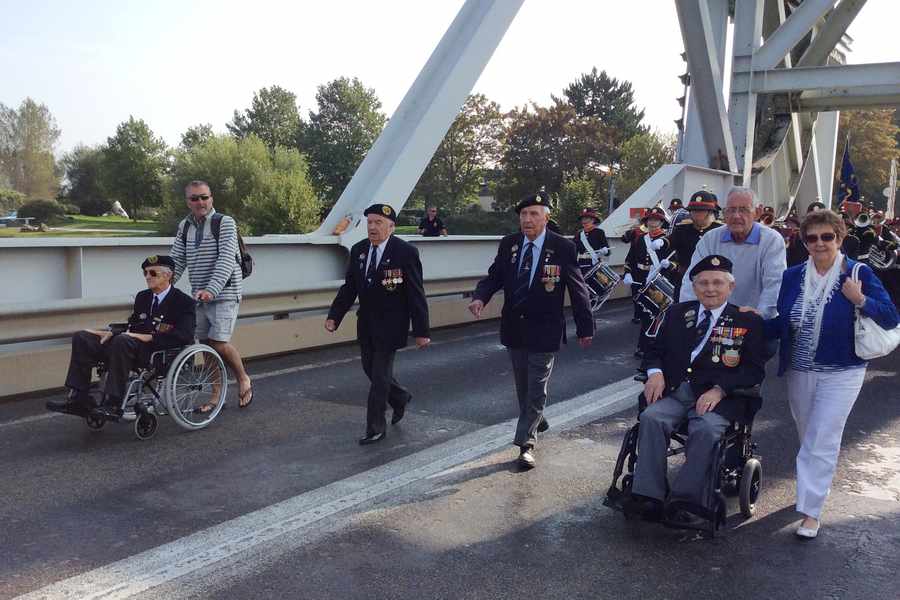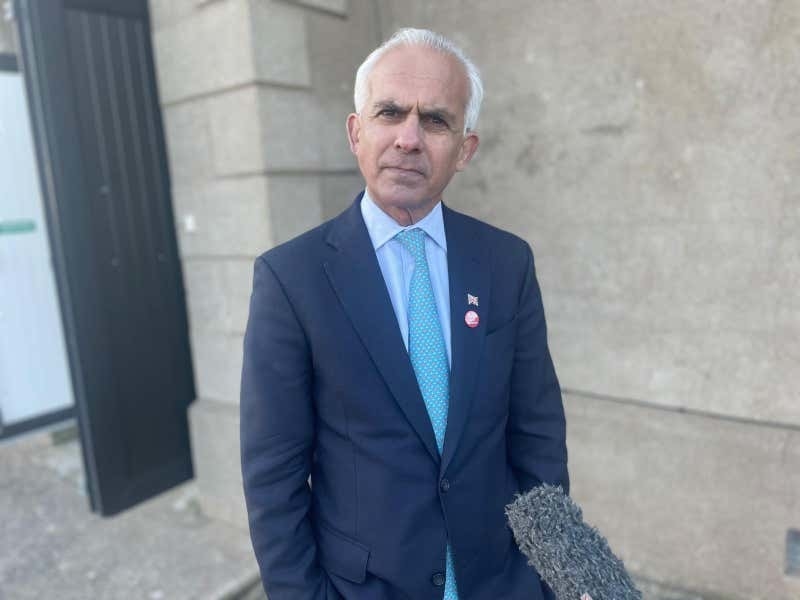- A letter has been discovered that was written by a solider at the end of the Second World War
- Jack Clarke went on to serve as head teacher at a number of Jersey schools
- See the letter in full below
- The Island will celebrate the 70th anniversary of Liberation Day on Saturday
A SOLDIER’S message of hope and excitement following the end of the Second World War can be told publicly for the first time today – decades after he penned the note to his parents from the front lines.
Islander Jack Clarke, who went on to teach in Jersey, served in some of the bloodiest campaigns of the war 70 years ago.
He wrote to his parents in Norwich when the war ended, but spoke very little later in life about the horrors he and others had faced.
Today, the JEP can reveal the poignant note in full, written by the then 21-year-old Private on the night that peace was declared.
The letter remained undiscovered for decades – even after Mr Clarke’s death in 1992 – but was found when family members cleared out his brother’s home in the UK recently.
They sent the letter to Mr Clarke’s widow Else, who still lives in the Island.
In one passage Mr Clarke wrote: ‘It’s over, it’s finished and I’ve come through it safe – my God.
‘I want to burst into tears – for a year I’ve been scared stiff of dying.
‘Have you ever laid flat on the ground with your fists clenched; the knuckles going white, praying that next whistle or while will not be your lot?’
Mr Clarke served in the Parachute Regiment with the Sixth British Airborne Division.
‘He took part in the Battle of Arnhem, which saw heavy casualties, and also helped to secure Pegasus Bridge as part of the advance party during the D-Day Landings.
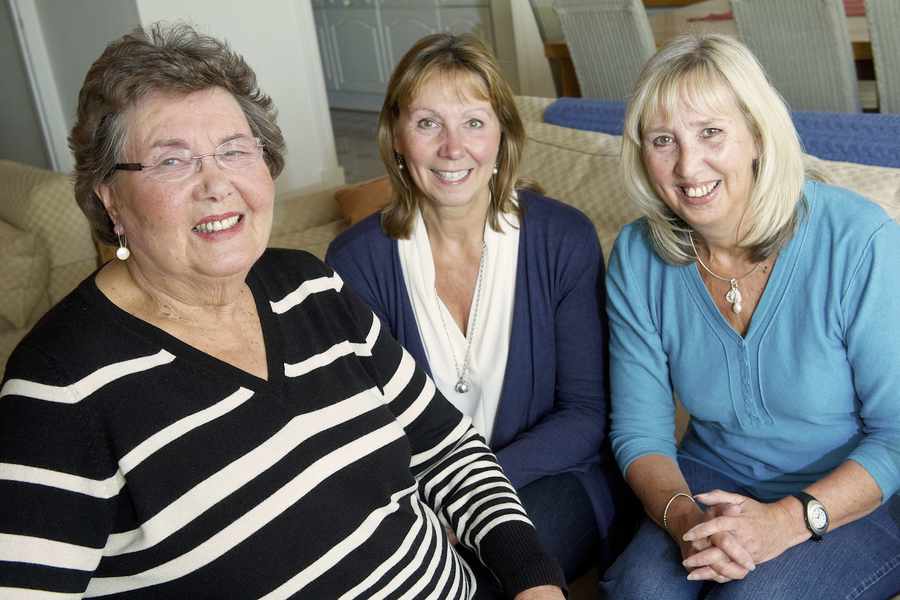
Born in Norwich, Mr Clarke went on to teach English after the war.
He moved to Jersey in the early 1950s where he taught at the newly-opened Hautlieu School.
Mr Clarke went on to serve as head teacher at Trinity, Grands Vaux and Janvrin, before leading a teacher training unit in the Island.
Mrs Clarke (83) said: ‘We knew absolutely nothing about this letter.
‘It was quite, quite moving to read it and see how he was.
In the letter he mentioned how the last 11 months had been hell. That period started with the landings in Normandy and Pegasus Bridge.
‘He spoke very little about the landings.
‘He was in the Battle of Arnhem as well in September 1944. All he said was those were six days of hell. Something like 10,000 went in and only 2,000 came out unscathed – all he ever mentioned was how lucky he was.
‘He was such a good person. He could never say anything bad about anyone. He just liked people and they appreciated him in return.’
Tina Seymour, the daughter of Mr and Mrs Clarke, said it was amazing to have the letter, adding that she had shown it to her grown-up children, some of whom are a similar age to Mr Clarke when he wrote the message.
She said: ‘It was really quite emotional reading it, but most of all we all felt so proud of dad and what he went through – so incredibly brave at such a young age.’
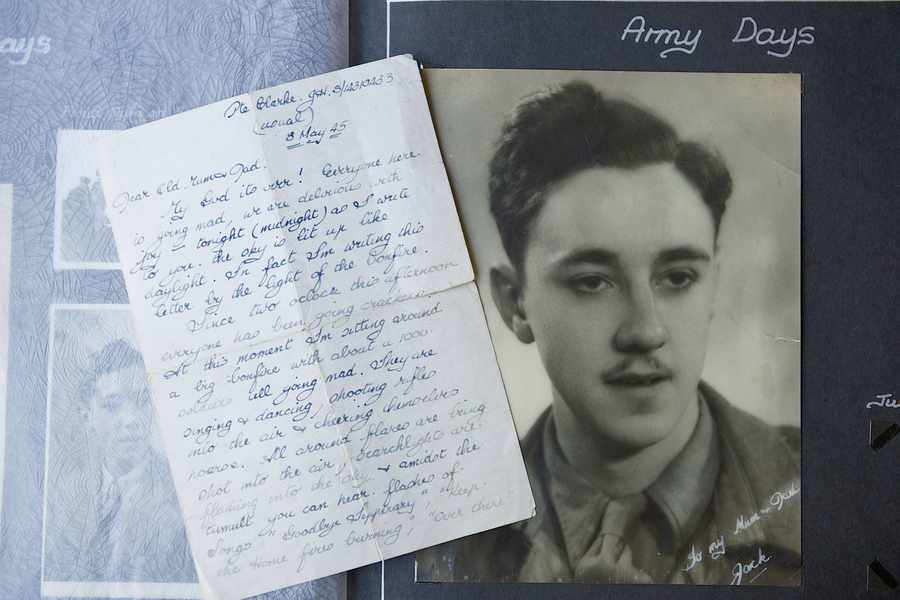
‘Dear old Mum and Dad.
‘My God it’s over! Everyone here is going mad, we are delirious with joy – tonight (midnight) as I write to you the sky is lit up like daylight. In fact I’m writing this letter by the light of the bonfire.
‘Since two o’clock this afternoon everyone has been going crackers. At this moment I’m sitting around a big bonfire with about 1,000 soldiers all going mad. They are singing and dancing, shooting rifles into the air and cheering themselves hoarse. All around flares are being shot into the air, searchlights are flashing into the sky and amidst the tumult you can hear flashes of songs ‘Goodbye Tipperary’, ‘Keep the Home Fires Burning’, ‘Over There’.
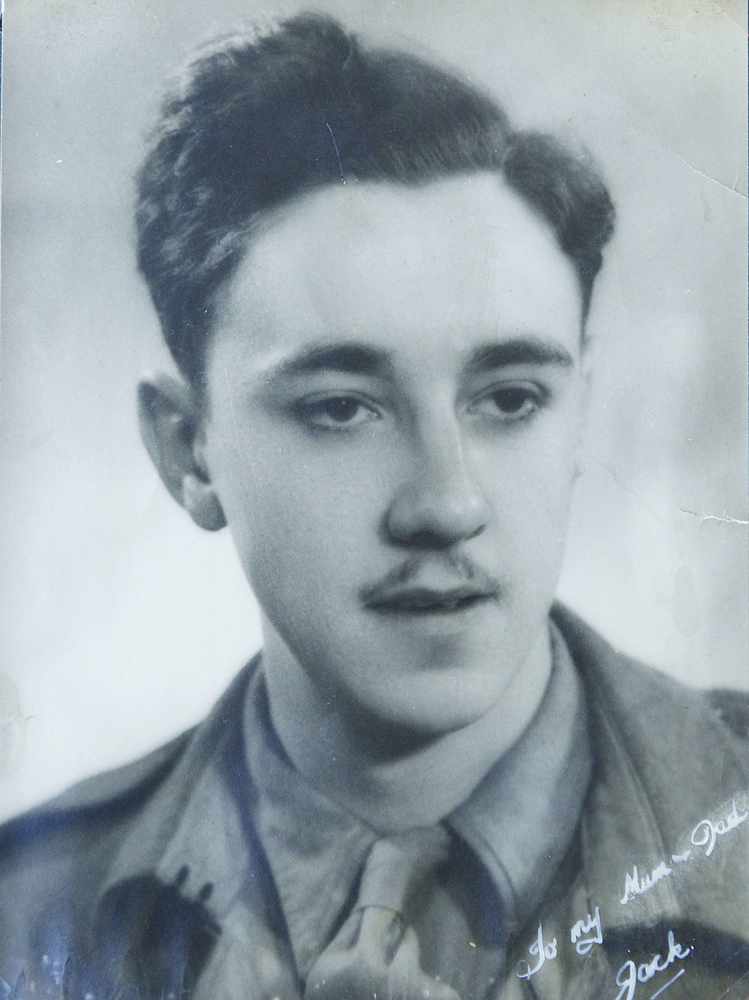
‘In the middle of the circle is a dais, and with out band has been Dorothy Carlos singing.
‘Someone has found an old hansome cab and they are pulling it around in a jeep. It is piled high with blokes all dressed up.
‘The feeling is terrific – as I look around the skyline it looks like London on a blitz night – ack-ack guns are firing thousands of rounds; flares are being dropped by aeroplanes, and really it’s most impressive.
‘Naturally I have been thinking of you all and wondering what you are doing – I can imagine the flags out – wine flowing and you too all going mad.
‘For us out here it’s over, no more mud, no more ditches no more cold dawns with a cold rifle in hand, no more getting a dark speck in your sights and then pulling the trigger and feeling a little sick when you realise it is someone’s son or husband.
‘It’s over, it’s finished and I’ve come through it safe – My God. I want to burst into tears – for a year I’ve been scared stiff of dying – have you ever laid flat on the ground with your fists clenched; the knuckles going white, praying that next whistle or whine will not be your lot?
‘I have; for exactly 11 months, three days I’ve been doing it. I’ve prayed that I should see my folks again and now I know that nothing can stop that and now you can imagine my feelings.
‘Have you ever stood with your knees in mud, shivering, wet and hungry answering a roll call?
‘Names are called out and are not answered, everyone bows their heads and murmurs of “poor old Charlie” are heard.
‘That’s war, that’s horror, and that’s all finished.
‘I’m too full to write anymore – have a good time and drink my health.
‘Bye-bye. Your loving son Jack.’
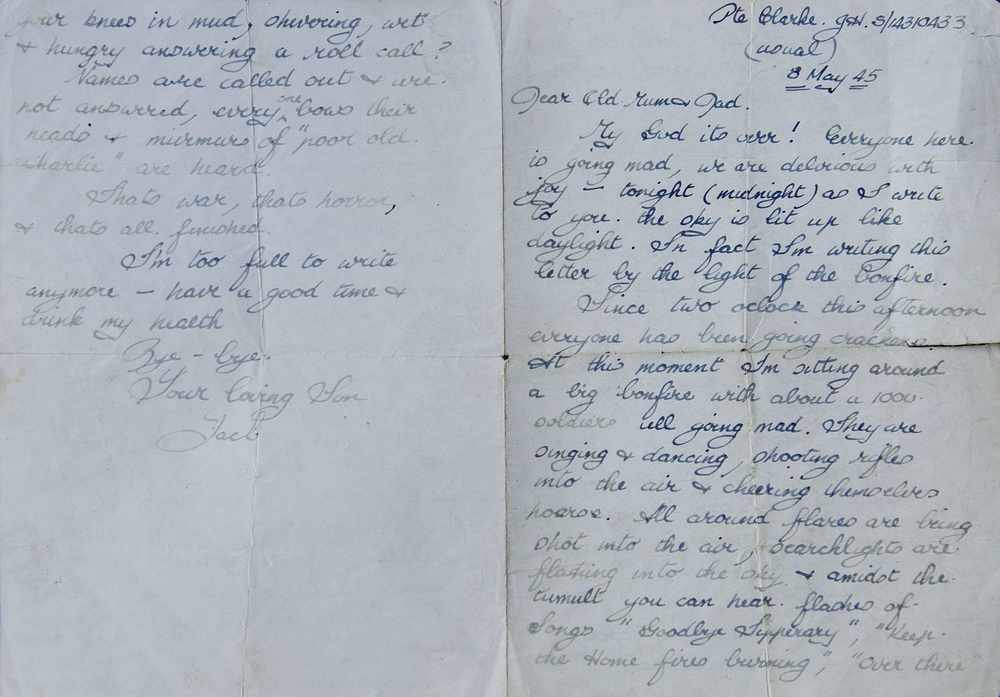
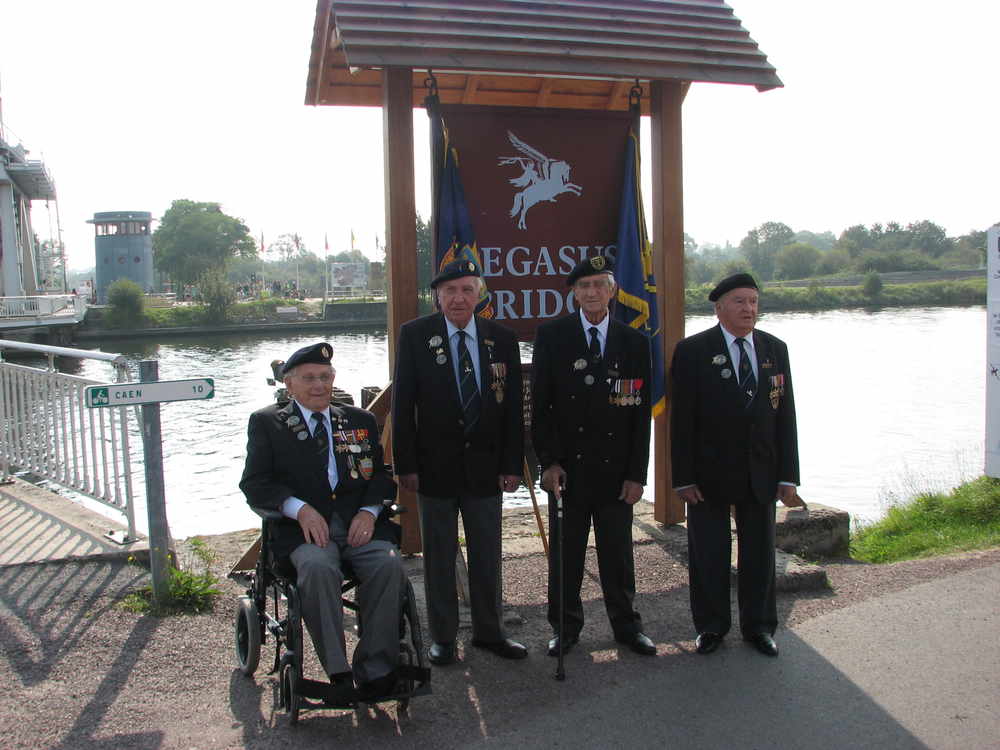
- Pegasus Bridge, also known as the Benouville Bridge, was the major objective of Operation Deadstick at the start of the invasion of Normandy.
- The bridge, which features in the 1962 war film The Longest Day, was built in 1934 and was renamed Pegasus Bridge in honour of the D-Day operation.
- The taking of Pegasus Bridge in the early hours of D-Day was a major triumph for the Allies because the control of Pegasus Bridge gave the Allies the opportunity to disrupt the Germans ability to bring in re-enforcements to the Normandy beaches, especially those that the British and Canadians were landing at Gold, Juno and Sword.
- Even the most basic of delays in getting German troops to the beaches would have been important and the capture of the bridge that guarded the main road to Ouistreham and then on to the beaches further west was of great importance to the Allies.
- Veterans from Jersey have returned to Pegasus Bridge a number of times since the Second World War, most recently in September 2014.
- On that occasion, traffic was halted as four veterans, accompanied by the Band of the Island of Jersey, marched across Pegasus Bridge in Normandy to commemorate the 70th anniversary of the D-Day landings.
- Clive Kemp, Fred Newton, Harry Fenn and Billy Reynolds took part in the march, accompanied by 40 members of the band.
